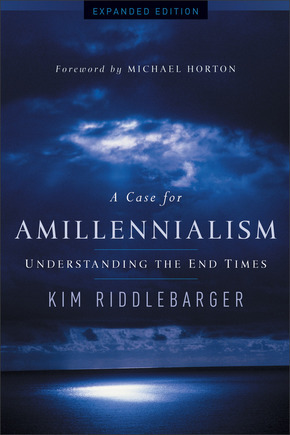 “A Case for Amillennialism: Understanding the End Times” by Kim Riddlebarger
“A Case for Amillennialism: Understanding the End Times” by Kim Riddlebarger
Like many Christians in the last century, I grew up hearing about the secret rapture that would remove the Church just prior to the start of the Great Tribulation. I read the Left Behind books in high school, and felt sure I would be able to recognize the Antichrist as he rose to power in the European Union. I was a Dispensationalist; I didn’t know a Christian could be anything else.
Then, as I got more serious about studying my Bible, I began to have questions about the events surrounding Christ’s return to which my prior understanding could not provide satisfactory answers. I poured over Dispensational texts: first popular works like Chuck Missler’s Learn the Bible in 24 Hours and then more scholarly works like Dwight Pentecost’s Things to Come. While they did have answers to every one of my questions, something about those answers still didn’t sit right with me… though I couldn’t quite put my finger on it.
It was then that I began to search out eschatological writings from outside the Dispensational viewpoint. At first, I was “tossed by the wind” because I did not ask for Godly wisdom, but relied instead on the wisdom of the authors I was reading. As a result, my “convictions” evolved quickly, from “pre-wrath” to historic premillennial to amillennial, partial preterist, and right back to confused.
Finally, I did what I ought to have done in the first place. I asked the Lord for wisdom, and searched the Scriptures with renewed vigor. The one positive result of my earlier reading was that it had at least served to reveal to me the hermeneutical presuppositions with which Dispensationalists view Scripture. Now free to study the Word without this interpretive lens, my questions gradually began to find their answers. I became more and more convinced that the Biblical authors seemed to be pointing ahead to a single climactic event in which Christ will return, the dead will rise and face judgment, and believers will enter their eternal rest.
The Bible itself convinced me of the truth of amillennialism.
When I now went to leading amillennialist scholars, their books simply confirmed in my mind what I had already come to believe. And this, after the lengthy auto-biographical prelude, brings us (finally) to Kim Riddlebarger’s book.
Though, as the title suggests, this book builds a case for amillennialism, it is likely not sufficient on its own to fully persuade anyone who is not already an amillennialist to become one. Nor should it. Our theological positions should be built from Scripture itself.
Thankfully, A Case for Amillennialism forces the reader to interact heavily with Scripture. Riddlebarger writes with the expectation that the reader will either be extremely familiar with the relevant biblical texts, or, like me, have a Bible handy for frequent referencing. His goal is to let Scripture speak for itself, rather than reading his eschatology into the text.
The book is helpfully divided into four sections. The first clearly defines the terms used frequently in the book, and gives an overview of the major eschatological views. The second section addresses several biblical and theological concerns topically, contrasting the amillennial position with opposing views. Riddlebarger then goes into a lengthy exposition of four key texts (Daniel’s 70 Weeks, the Olivet Discourse, Romans 11, and Revelation 20:1-10) before a closing section on the signs of the end and some questions Bible students should ask when evaluating millennial options.
Of the many books on the “End Times” I’ve read over the years, this has been the most helpful, and will be the one I am most likely to recommend to others. I found Riddlebarger’s writing to be more accessible than Anthony Hoekema’s The Bible and the Future and less intimidating than Sam Storms’ massive Kingdom Come, though each of those is also worthwhile. His clarity and brevity are skills honed as the long-time co-host of the White Horse Inn radio broadcast; he is an excellent communicator.
A Case for Amillennialism is particularly helpful for those like me who come from a Dispensational background, as he spends much more time addressing that interpretation than he does preterism, post-mil, or historical pre-mil. He is gracious toward those with whom he disagrees, but firm in his opposition to their views.
Throughout the book Riddlebarger relies heavily on references to Hoekema’s classic work, though they do disagree at times. Their most notable point of difference is on whether or not there is a distinct future role in redemptive history for ethnic Jews. Hoekema says no (because “all Israel” in Romans 11 refers to the total number of believers rather than to ethnic Israel), but Riddlebarger believes that Paul teaches that there will be a large-scale conversion of Jews to faith in Christ just prior to the Lord’s second coming. On this point I side with Riddlebarger.
The “Expanded Edition” adds a chapter on the Antichrist (with content taken largely from his book The Man of Sin) and a chapter on the signs of the end. If you don’t own a copy, I’d recommend that you purchase the new edition, but there’s probably not enough new material to warrant an upgrade if you already have the earlier version.
Whether you’re a convinced amillennialist, a proponent of another eschatology looking to fairly represent your opponents, or simply someone with questions that need answering, you can’t go wrong reading this book. Buy it here.